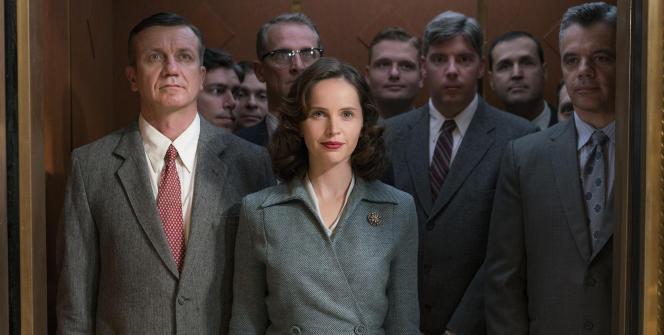On the Basis of Sex is a pretty good movie that has the distinction of being eclipsed by a recent documentary on the same subject: Supreme Court Justice Ruth Bader Ginsburg. This dramatization was sanctioned by Justice Ginsburg, in part because it was written by her nephew, Daniel Stiepleman, but that endorsement doesn’t deliver a fully satisfying film.
Felicity Jones has taken considerable heat for her somewhat bland performance, and it’s not hard to think of other young actresses who might have risen to the challenge of portraying this remarkable woman. Jones isn’t bad but she doesn’t possess the inner fire that distinguishes the singular person she’s pretending to be.
Stiepleman opens the film in 1956, when Ginsburg entered Harvard Law School, already married and raising a child. As the dean of that institution, Sam Waterston embodies the kind of man who blithely insults women without fear of retribution. But Ginsburg is not to be reined in or held back. In time, she specializes in taking on groundbreaking sex-discrimination cases and makes history, over and over again. She also succeeds in finding the right man to be her husband—a cheerful, outgoing fellow who was a true partner. He’s well played by Armie Hammer, but the screenplay never paints him in the shining light he earns in the documentary.
Under the direction of Mimi Leder, On the Basis of Sex is a decent-enough primer, earnest at every turn. But it is little more than adequate, and I think I would have reached that conclusion even if I hadn’t seen the outstanding documentary RBG, directed by Julie Cohen and Betsy West. I wish this mainstream movie had more insight, more swagger, and more personality than it does. Justice Ginsburg deserves no less.








